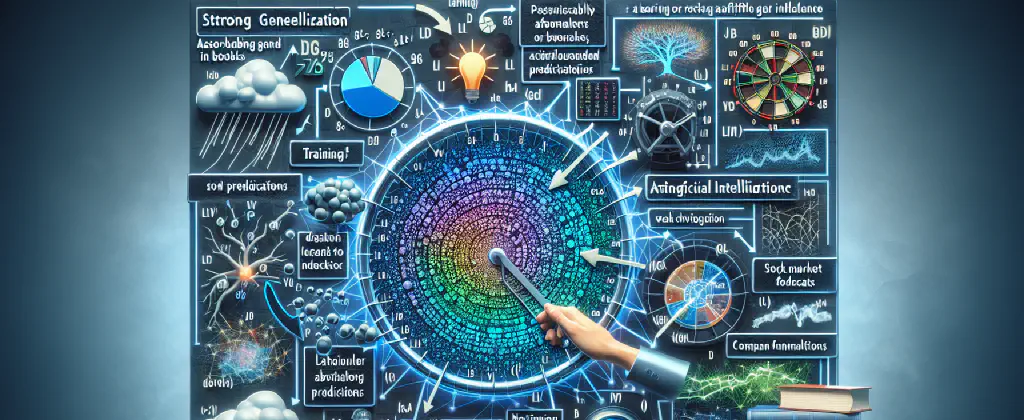17. December 2023
Weak-to-Strong Generalization: Unpacking the Potential of Language Models

The advent of Language Models (LMs) has sparked debates and speculation about their potential to reach Artificial General Intelligence (AGI), a highly autonomous system that surpasses humans in most economically valuable work. Some argue that LMs, trained on the outputs of human intelligence in the form of human-written text, can never achieve true human-like intelligence. They claim that just as predicting the weather or the stock market requires training on the inputs (air currents, company fundamentals, etc.), training an intelligent system requires learning from the inputs of human decision-making.
Understanding Through Outputs
However, the relationship between inputs, outputs, and understanding is not so straightforward. Language itself plays a crucial role in shaping our understanding of the world. For example, children learn language primarily through observing and imitating the language output of others around them. Over time, this language becomes the cognitive apparatus that enables them to imagine, reason symbolically, and abstractly. Language, learned from outputs, becomes a fundamental part of our intelligence.
Context is Key
But is language enough to understand the world fully? Some argue that context is essential. Learning language is contextualized by visual and spatial information about the real world. Additionally, humans receive feedback on their decisions, both positive and negative, which further shapes their understanding. This suggests that understanding is not solely derived from language but is influenced by a combination of linguistic inputs, sensory stimuli, and real-world feedback.
Language as a Gateway to Intelligence
In comparing LMs to weather prediction or stock market analysis, it is important to recognize the fundamental differences between these systems. While weather prediction and stock market analysis rely on input data to make specific predictions, intelligence itself encompasses much more. Intelligence is not just about predicting outcomes based on inputs; it is about the ability to learn, adapt, and generate novel responses in a broad range of scenarios.
The Role of Supervised Learning
One argument raised is that children learn through supervised learning, with parents or caretakers correcting their language usage. However, this claim is met with counterarguments that question the necessity of constant supervision. There are cultures where children become proficient in language without extensive input from adults. Language acquisition is a complex process that incorporates pattern recognition, contextual inference, and unsupervised learning.
Bridging the Gap
The debate surrounding the potential of LMs to achieve AGI often overlooks the fact that humans themselves are products of their interactions with outputs. Our learning and understanding of the world are profoundly influenced by the language, behaviors, and cultural artifacts we observe. While LMs may not perfectly replicate human intelligence, they have already demonstrated remarkable capabilities.
A Humorous Twist
Amidst the excitement and speculation surrounding AI and LMs, a humorous outcome could be the philosopher Ludwig Wittgenstein achieving the status of Kurt Gödel in his assertion of the “incompleteness” of language. This highlights the complexities of the relationship between language and cognition and questions the limits of understanding through language alone.
As the world continues to delve into the realm of language models and artificial intelligence, it is crucial to recognize that understanding is a multifaceted process. Language serves as a gateway to intelligence, but it is not the sole determinant. By embracing a holistic approach that incorporates inputs, outputs, context, and real-world feedback, we can unlock the true potential of language models and move closer to bridging the gap between weak and strong generalization. 🌍📚✨